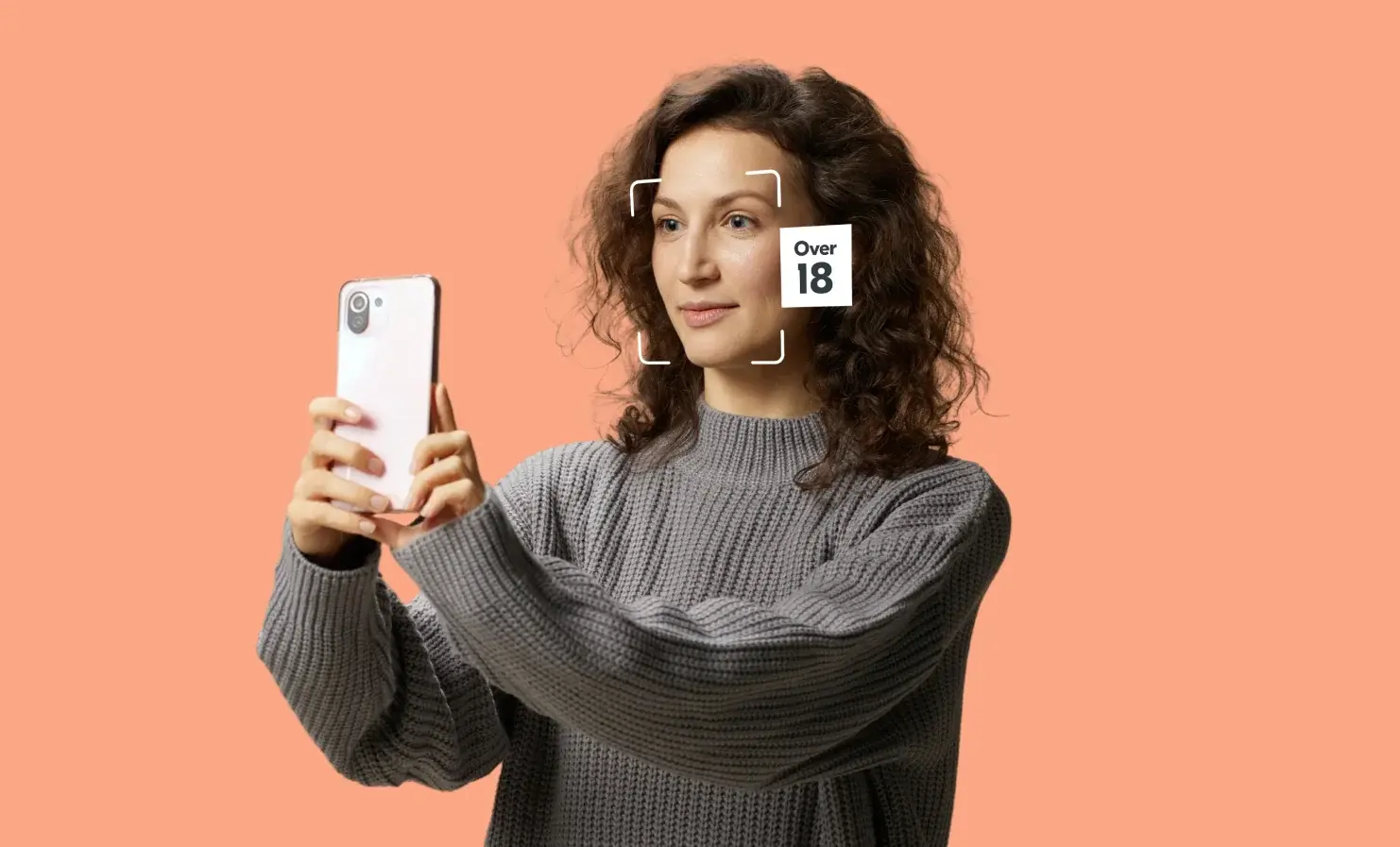
In this blog series, our CEO Robin Tombs will be sharing his experience, whilst focusing on major themes, news and issues in the world of identity verification and age assurance.
This month, Robin discusses the future of digital ID wallets in the UK, Yoti’s revenue growth, Ofcom’s role in protecting women and girls from intimate image abuse and the US Supreme Court’s ruling on age verification for accessing adult content.
Growth of digital ID wallets
Last month, I attended an event by the City of London Corporation and EY where they presented their report Securing growth: the digital verification opportunity. The report offers useful insights and recommendations. The conclusions are bullish: the majority of British citizens are supportive of digital IDs. There’s also much to gain economically through a mix of business efficiencies, lower costs and reduced fraud.
The Government is banging the same drum, announcing back in January that it will launch a GOV.UK ID wallet in late 2025. The wallet will offer utility for citizens when interacting with public sector bodies and some private sector organisations.
Just prior to that, the Financial Conduct Authority wrote to the Government stating “digital identity authentication/verification could unlock huge gains.”
In the 6 years since 2019, 1 in 6 (17%) 18-year-olds have created a Yoti Digital ID wallet to prove their identity and access their Child Trust Fund money. Over 25% of UK citizens aged 18-22 have also created a Yoti Digital ID.
When offered the choice, 1 in 3 UK adults complete DBS checks online. And 1 in 4 have completed an online right to work check using one of three certified Digital IDs (Yoti ID, Post Office EasyID or Lloyds Bank Smart ID). In total, 5.6 million UK individuals have created one of these three Digital ID wallets.
Significant changes in legislation relating to digital verification and the wider acceptance of certified digital ID wallets are due by the end of 2025. With this, the adoption of digital ID wallets is set to boom from 2026. This will have a big impact on the Financial Conduct Authority’s 2025-2030 strategic goals of deepening trust, supporting growth, fighting crime, smarter regulation and helping consumers.
But there are still some big uncertainties:
- The Government is not yet sure if citizens will be able to hold their digital driving licence credentials in a certified private sector digital ID wallet.
- The GOV.UK ID wallet will be certified by the Office for Digital Identities and Attributes (OfDIA) alongside private sector ID wallets. However, it seems only the GOV.UK ID wallet will be usable by citizens for interactions with the central government, local government and other public sector bodies.
- The Financial Conduct Authority has no public view on the role of digital ID wallets certified by OfDIA. There’s no mention of such digital ID wallets in their recently published 2025-2030 strategy deck. This is strange given it’s very likely that over 25 million UK individuals will own and use at least one certified digital ID wallet by 2030. This will have a big positive impact on business efficiencies, lowering costs and fraud rates whilst boosting consumer convenience and trust.
- It’s not known how much private sector investment there’ll be in the UK digital ID market over the next 2 to 3 years, especially given some industry concerns that the GOV.UK ID wallet will crowd out the private sector.
Despite these uncertainties, a large percentage of Brits will inevitably be using certified reusable digital IDs by 2030.
Yoti achieves first EBITDA profit month
I’m pleased to share that in March 2025, Yoti grew revenues by 78% year-on-year, from a daily average of £40.1k to £71.5k. This marks our first EBITDA profit month, with current annualised revenues now hitting £26 million.
We’re forecasting another year of strong revenue growth, primarily driven by both our existing and recently-signed global customers primarily using more of our identity and age-checking services across the world.
We’re expecting some UK revenue growth this year driven by more businesses complying with the Online Safety Act. But, painfully, UK law still prevents supermarkets from offering Yoti facial age estimation for alcohol purchases at self-checkouts.
Positive changes in UK legislation over the next 6-12 months should drive stronger UK revenue from 2026. More businesses will be able to accept age or identity details from individuals using Yoti’s reusable Digital ID, which has been certified by the UK government. More customers, employees and contractors will be able to accept business-issued verified credentials into their Yoti Digital ID wallets.
A massive thank you to:
- Yoti’s business customers across the world, both large and small, for using our services.
- The Yoti team across the globe – I’m biased but you’re an outstanding team 🙂
- Our shareholders, including Lloyds Banking Group, for believing in the Yoti team and supporting our growth.
- The team at HSBC for providing growth funding in December 2023 to help Yoti accelerate to break even.
Ofcom urged to proactively protect women and girls online
Millions of women and girls will be encouraged to see UK legal firms Leigh Day and Mishcon de Reya LLP representing victims of intimate image abuse. They’re challenging Ofcom to now “use its extensive enforcement powers…against service providers that perpetrate harm against women and girls”.
Leigh Day has asked Ofcom to:
- Investigate sites, along with other similar sites and forums including search engines, that point users to this content.
- Use its full powers to gather evidence as part of further formal investigations.
- Consider issuing business disruption orders.
- Consider using its powers to: issue sites with fines, pay compensation to the women whose images have been posted and ensure that, in the future, they operate within the law.
Yoti has explained to Ofcom that site operators can use automated safetytech software to remove the risk of unintentionally allowing intimate images to be posted on their platforms without the consent of the person(s) shown in the images.
But Ofcom has not required such automated content moderation tools to be used. Instead, they require sites to promptly take down such intimate images posted without consent.
This reactive take-down approach is not fit for purpose. The vast majority of victims of intimate image abuse are women and girls, who should not have to worry about checking sites to see if (or hearing from strangers or friends that) their intimate images (or deepfake lookalike nude images) have been posted without consent.
US courts review age verification to access adult content
The US Supreme Court is expected to rule by July on whether states may require online porn sites to verify the age of users to prevent minors from accessing adult content. The case is between the Free Speech Coalition and Texas Attorney General Paxton. Nobody outside of the US Supreme Court’s nine justices has a good feel for what their decision will be when they pass judgment on the case.
Without getting into too much detail on US law (of which I am no expert), there is disagreement over whether, on appeal, the Fifth Circuit should have evaluated Texas state law under strict scrutiny (or possibly intermediate scrutiny) instead of rational scrutiny. This issue is not the only one being considered by the US’ highest court. However, it is an important one as today, compared to 5, 10 or even 20 years ago, there is a burden on all adults to prove that they are over 18 in order to access adult content.
It is far more difficult for age verification to pass the strict scrutiny test than it is to pass intermediate or rational security tests.
During the oral arguments on 15th January 2025, as neatly summarised on Wikipedia, Court observers stated that six conservative justices, along with the more liberal Justice Kagan, appeared to be in favour of tighter controls for accessing pornography. They argued that the conditions around the Ashcroft case no longer apply well. At the time, the Court had ruled that filtering software could be used. But now, this is no longer reasonable due to the ubiquitousness of devices like iPhones and young people typically being more tech-savvy than their parents and being able to bypass these filters.
Only Justice Alito supported using the rational basis standard to review the Texas law. The other justices suggested intermediate scrutiny, that would allow states to require verification for pornography but not for all sexually-related materials, such as information related to LGBTQ topics.
Age assurance technology has advanced rapidly over the past two years. In the next 1-2 years, tens of millions of adults in the UK, France and Australia will likely choose low-friction, privacy-preserving age check methods online. They’ll be able to prove they are over 18 and then save and reshare that anonymous ‘over 18’ age credential, which will be bound to a passkey on their phone, tablet or laptop for 90, 180 or 365 days.
Alternatively, adults around the world can download a free digital wallet app such as Yoti. With this, they can prove their age once in the app using facial age estimation or an identity document. After that, they can share their ‘over 18’ age credential anonymously for decades to come (since we only grow older). Businesses do not have to pay to receive an age credential from the Yoti Digital ID app.
This will make it much easier for adults to prove they are over 18. Once verified, they won’t need to repeatedly perform age checks on every porn, vaping or any other age-restricted site once they’ve passed their first adult age check.
If the US Supreme Court rules in Spring 2025 that age checks are still too burdensome, my instinct is this issue will return to the US Supreme Court in 2-3 years’ time. At this time, the Court will deem age checks not to be too burdensome, even if evaluated under strict scrutiny.




